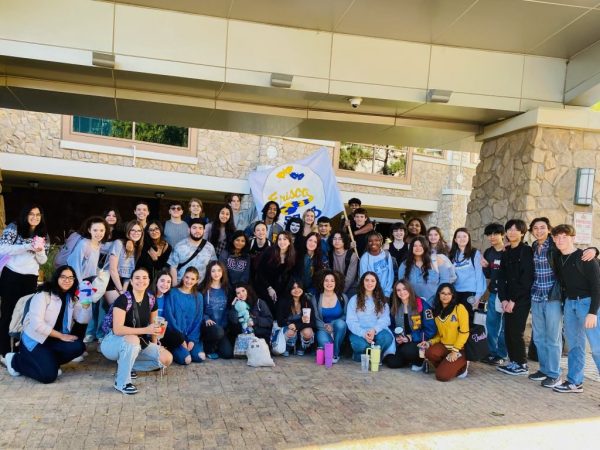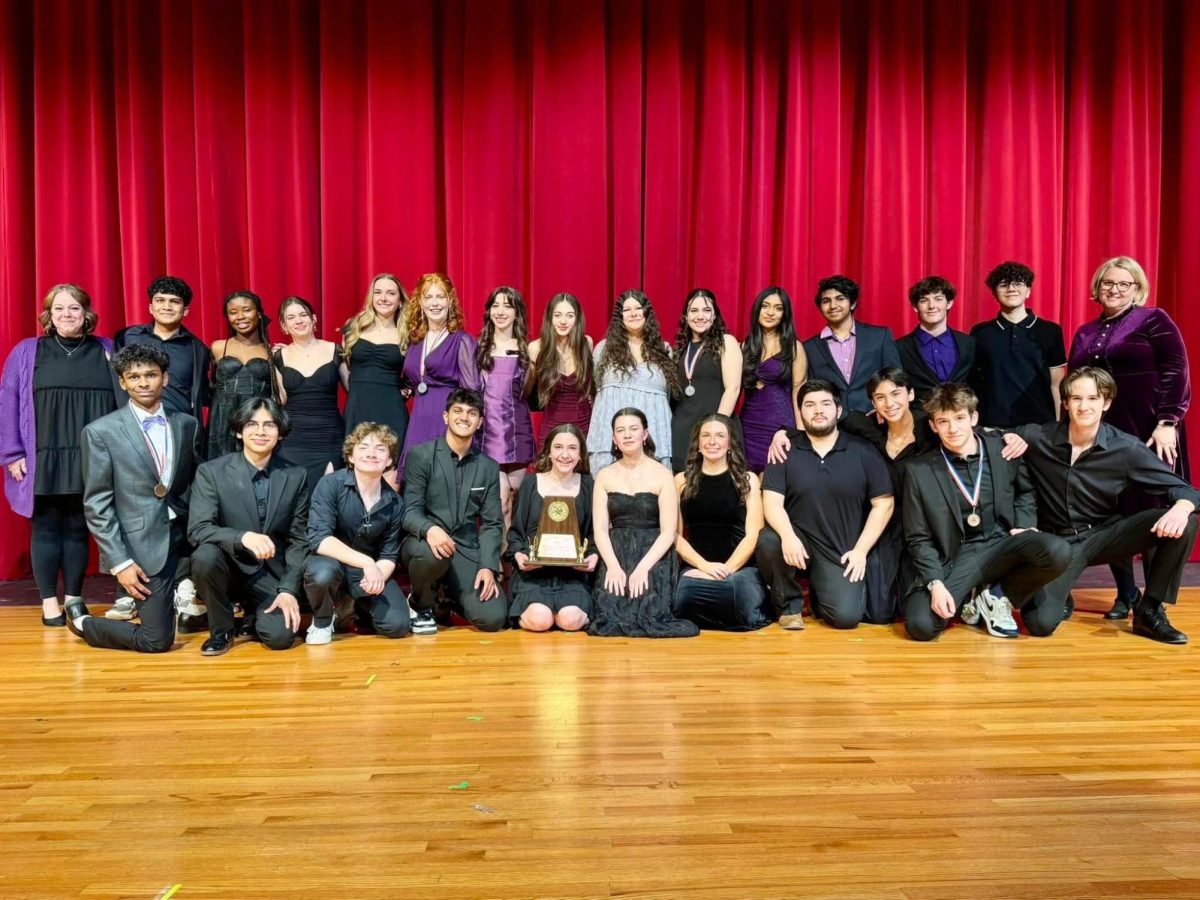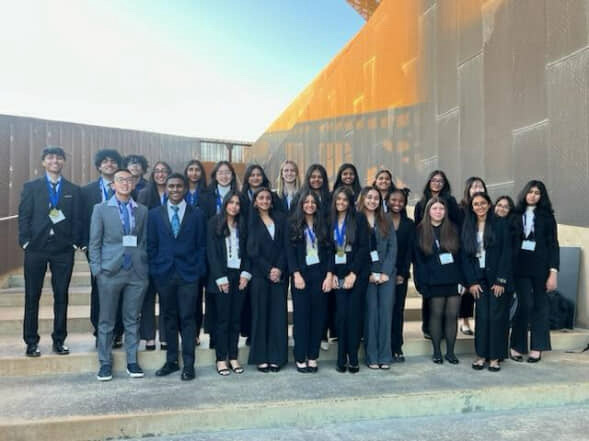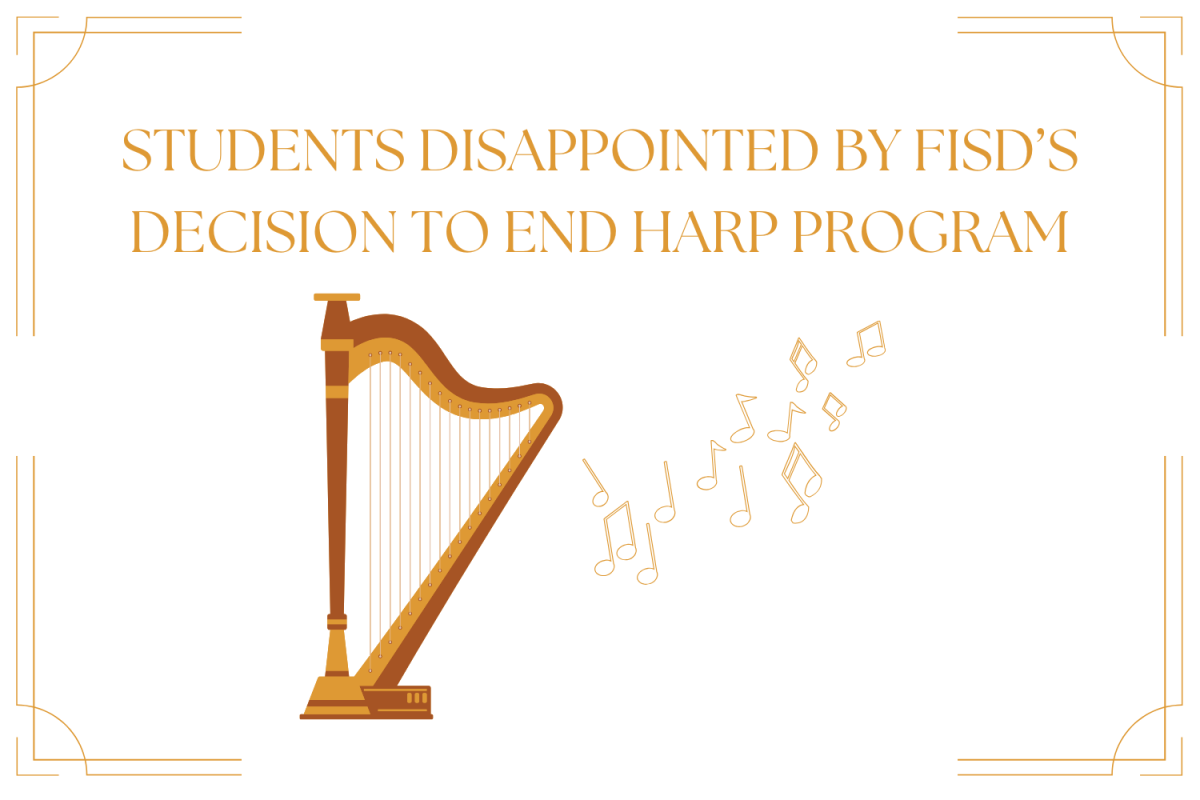March is not only recognized as Women’s History Month and the month of St.Patrick’s day, it is also Theatre in Our Schools (TIOS) month. TIOS, sponsored by the American Alliance for Theatre & Education (AATE) and the Educational Theatre Association (EdTA), is meant to celebrate theater education and advocate for quality theater programs inside and outside of schools.
“Theatre In Our Schools month is important to raise awareness about this community we have so we can find kids who would be a good fit for us,” Olivia Lay, ‘26, said. “I know I personally was very much opposed to joining theater, but then as soon as I got into a theater class, I ended up loving it and staying in it for all my years of high school and most of middle school.”
School theater programs strive to teach students about all things related to theater, while focusing on teaching students life skills that will benefit them regardless of what profession they choose to pursue.
“I love teaching theater, but it isn’t my primary goal to create future professional technicians or performers,” tech theater teacher Lisa Custer said. “My goal, always, is to create better problem solvers, critical thinkers, charismatic and effective communicators and empathetic leaders. For me, theater is just the vehicle to teach these very important life skills.”
In order to teach these life skills, Custer allows students to have an active role in each show’s production process.
“I think the biggest thing I’ve learned from theater is leadership skills, especially when it comes to being creative,” Lay said. “A lot of times, in rehearsal, we as the actors and the student technicians are working to help the directors to come up with ideas for the show, and working collaboratively and learning to put our ideas out there for everyone to see. Even if we don’t end up taking everyone’s ideas, we know that we made the show what it is together. I think that’s something that you can’t really get in any other class.”

The program’s emphasis on collaboration allows students from all different backgrounds to grow close bonds with each other. Through these relationships, students discover their values.
“When you’re in a normal classroom, you don’t get exposed to a huge, wide range of people like in the way you do in theater,” Emma D’Andria, ‘26, said. “I think that’s taught me the importance of knowing that everyone is a person, everyone has their own struggles, and I’ve learned that inclusivity is one of the most important things.”
As an International Thespian Officer, one of D’Andria’s responsibilities is to be someone people can lean on when they are struggling. Through this position, she has been able to make the theatre community a positive environment.
Lay has felt firsthand the importance of the theater community and having people to rely on in times of uncertainty.
“It’s so nice to know that I have this group of people that I can rely on no matter what’s going on in my life,” Lay said. “Whether we’re going through a difficult moment in a rehearsal or in a show, or whether I’m going through a difficult moment at home, I always know that I have a group of people that I can count on.”
TIOS spreads awareness for a community that has been pivotal in the lives of many students. With this month, more students may give theater a chance and learn they too can succeed in the program.
“Some of my favorite moments as an educator have come from seeing underdogs find their potential,” Custer said. “Four years ago at a JV One Act Play contest I watched a senior who did lights win a tech award and he cried and said he had never won anything ever and was so proud. At that same contest, an ESL level one student got an acting award and was also so proud. We got third out of four in that contest, and I didn’t even care. So much learning and success happened that day.”





![Audra Shioya '25 receives a big check as a scholarship recipient. [PC: Audra Shioya]](https://raccoonrambler.com/wp-content/uploads/2025/05/IMG_4100-900x1200.jpeg)





